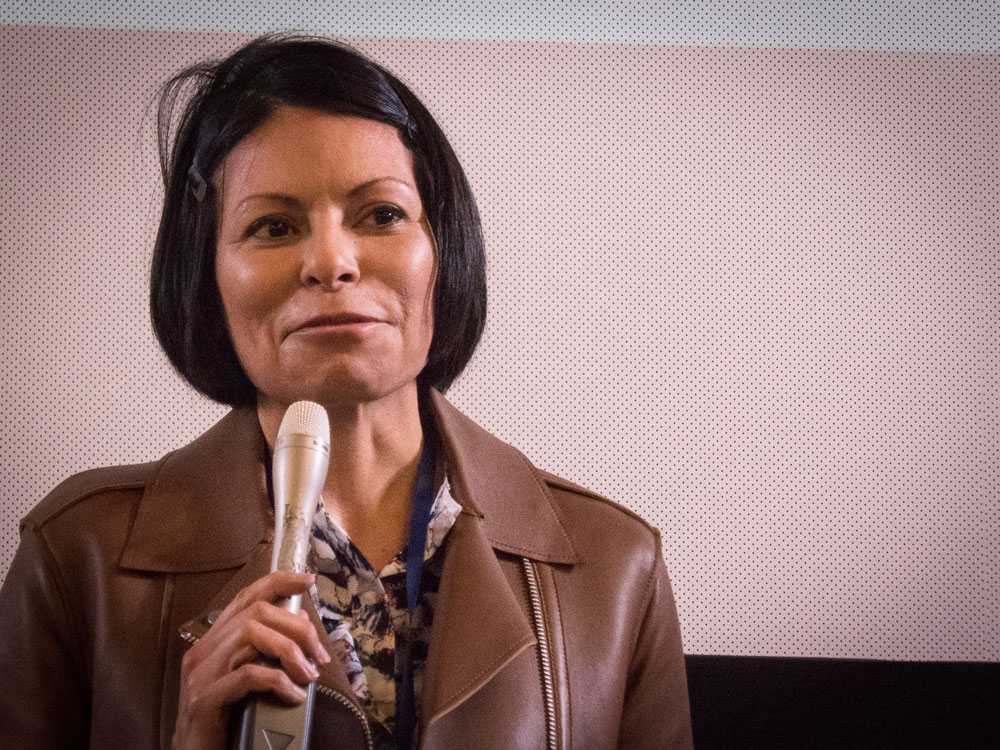Facebook Comes to LION to Talk About Its Journalism Project
Josh Mabry and Dorrine Mendoza from Facebook came to the LION Summit in Chicago Friday to learn, listen, and inform.

Josh Mabry and Dorrine Mendoza from Facebook came to the LION Summit in Chicago Friday to learn, listen, and inform. Both have journalism backgrounds and now help manage Facebook’s Journalism Project, which is aiming to help LION members in particular by explaining their efforts to get better quality information onto Facebook.
The Facebook Journalism Project launched in January in order to better collaborate with the news industry. The project has three primary areas:
• Collaborative development of news products. These include support for subscriptions for news outlets on Facebook, Instant Articles, ad breaks and branded content.
• Training and tools for journalists. Crowdtangle is now free for journalists, and LION members can also sign up (details available in our Facebook group). Facebook is also doing pilot projects with LION members, academic institutions, the Knight Foundation, and the Lenfest Institute.
• Training and tools for people. In the wake of “fake news,” Facebook is seeking to reduce posts by what they called “low-quality websites” and increase ways for people to report false news. In addition, there’s a new information icon on news sites that allows users to learn more about the news source.
Reducing low quality content raised some concerns about how Facebook determines what is “low quality,” but Mabry said that most LION members will not have issues here.
“(We’re) reducing low-quality content that is clearly not news,” he said. "Users have complained about it. Click bait headlines or sensational headlines will be shown to people less often. Fewer of these will be seen in feeds.”
Facebook is promoting Instant Articles – which is an option to post full stories directly to Facebook's platform. They cited their fast load time, and they presented some compelling statistics: Instant Articles load instantly, get 20 percent more clicks and get 30 percent more shares, they said.
"People start to engage with brand more and more," Mabry explained. Monetization options are also available through Instant Articles, including direct selling of ads that can be placed in the articles, audience networks ads from Facebook, ads in recirculation and branded content.”
While LION members expressed concern about their pages and content getting down-throttled, Mendoza said the goal is to improve both the information source and the user experience. Thousands of data points inform Facebook's algorithm, she added, which means that ultimately the company is trying to pair your content with users most likely to engage with it.
Case studies are available online at the Facebook media blog, and LION members were encouraged to sign up for their weekly emails: facebook.com/newsmediaupdates.
Mabry said that the recent announcement of the separation of news from user feeds was only a test in certain countries. He maintained that the company has no plans to roll out separate feeds for friends and Facebook pages, a point that is probably welcomed by LION members.
Bob Conrad is publisher of This Is Reno.
Sign up for the weekly newsletter
Join the LION mailing list to get our weekly roundup of opportunities and resources for news entrepreneurs. View our most recent issues.
Related Articles
Last call: Apply to receive $600 in travel support to attend the Independent News Sustainability Summit in Chicago
Fill out the travel stipend request form by Sunday, July 21, at midnight ET.
Igniting innovation: How RJI empowers independent news publishers to experiment with new ideas
RJI supports small newsrooms and community-centered journalists as they work to serve their communities.
How The Bedford Citizen prioritized its internal operations to pursue revenue growth and avoid burnout
Through LION’s Sustainability Lab, the team developed a master spreadsheet to track ideas and impact.